Editorial Director Paul J. Heney spoke to FIRST creator Dean Kamen for Design World’s January leadership issue, which sparked an interest into exploring the education side of careers in design and engineering. An interview between Assistant Editor Michelle DiFrangia and FIRST President Don Bossi delves deeper into the FIRST program and the advantages of early education.
Bossi joined FIRST, which stands for For Inspiration and Recognition of Science and Technology, around two and a half years ago. With the program, said Bossi, he hopes that younger generations will become inspired and interested in learning about science and technology through their various programs and challenges.
The inspiration starts at FIRST’s Lego League Junior Program, which caters to elementary school children, then into the FIRST Tech Challenge in the middle to high school and then culmination of FIRST Robotics competition at the high school level. The key to these programs, according to Bossi, is to keep the kids inspired and engaged through the freedom to be creative and inventive during these challenges.
One of the ways the FIRST program shows students exactly how these careers affect every day lives is through the use of smart phones running the Android operating system at their tech challenge program. “We actually introduced those as the robot communication and control system to help show kids, ‘you know, that thing in your pocket is incredibly powerful. Not only can it be a phone and be something you send texts and run apps on, but you can actually control a device with that.’” Bossi cites the new trend of “Geek Chic” as another way to spark interest, citing television shows like the Big Bang Theory and Facebook creator Mark Zuckerberg’s popularity among younger generations.
Bossi also pressed about the importance of “soft skills,” or critical thinking skills, in the industry. “We always say the most important thing they get out of it is those sort of soft skills or twenty first century skills that are really the critical thinking, the problem solving, but also the teamwork, the leadership, the communication skills,” said Bossi. “Ultimately, I think in a work force, those are every bit as important as just sort of what you know. It’s not just what you know, but it’s what you do with what you know and what you can accomplish with what you know. It’s not all just in the science side.”
Although Bossi believes there is still a long way to go in terms of educating younger people about these careers, he hopes the increase of programs like FIRST, such as the National Fluid Power Association’s Fluid Power Challenge, will also cause an increase of interest.
“It is very good that more and more of these types of programs are available out there, in the sense that I think all of these types of things engage kids in a more interesting way. These types of challenges, and again whether it’s FIRST or whether it’s any other type of challenge like that, is sort of starting to change how they think about the future. It’s interesting,” said Bossi. “We did an alumni survey a couple years ago. I think it was 89.6% of the kids who would come through our program that responded were now either in STEM Education at the college level or in STEM careers. We definitely think that these types of programs are much more successful at engaging kids and keeping them in the pipeline.”
For more of Don Bossi’s comments and insights on education, read: Project-based education creates excitement among students
FIRST
firstinspires.org
Filed Under: Commentaries • insights • Technical thinking, Student programs


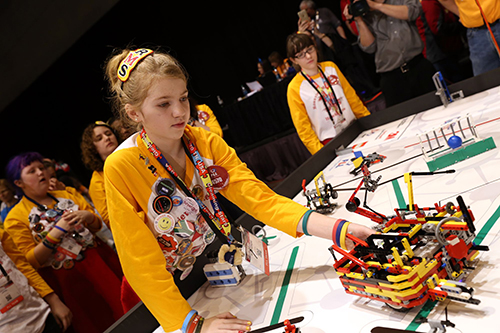
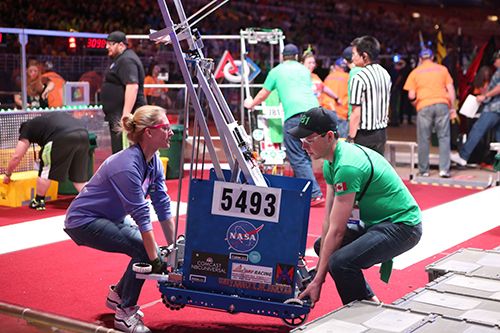
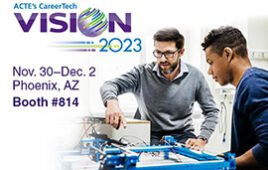
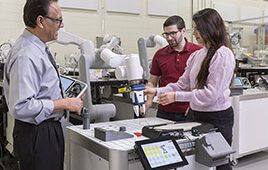
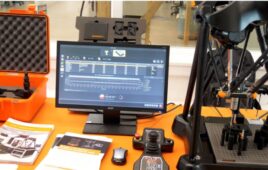

Tell Us What You Think!